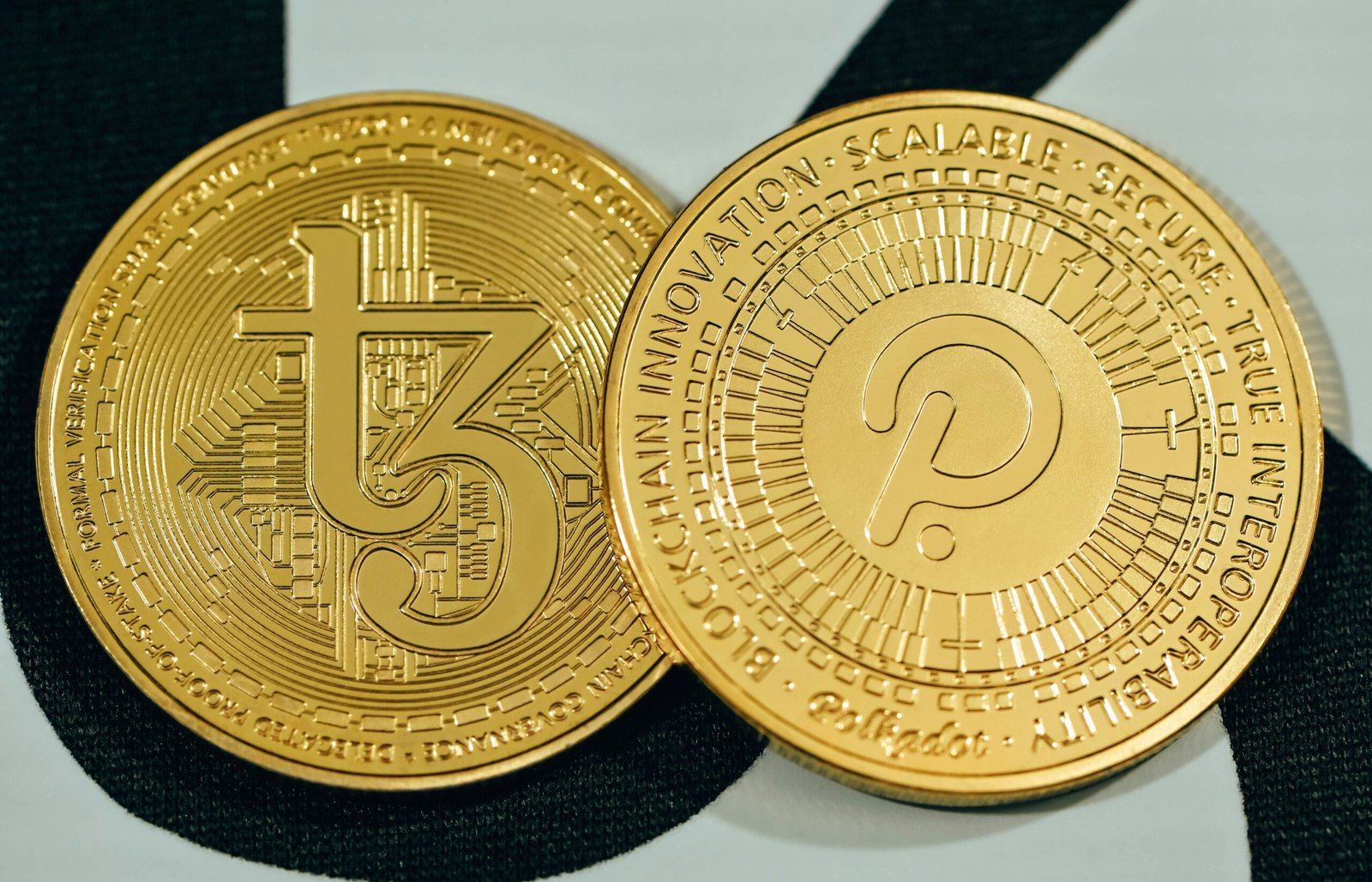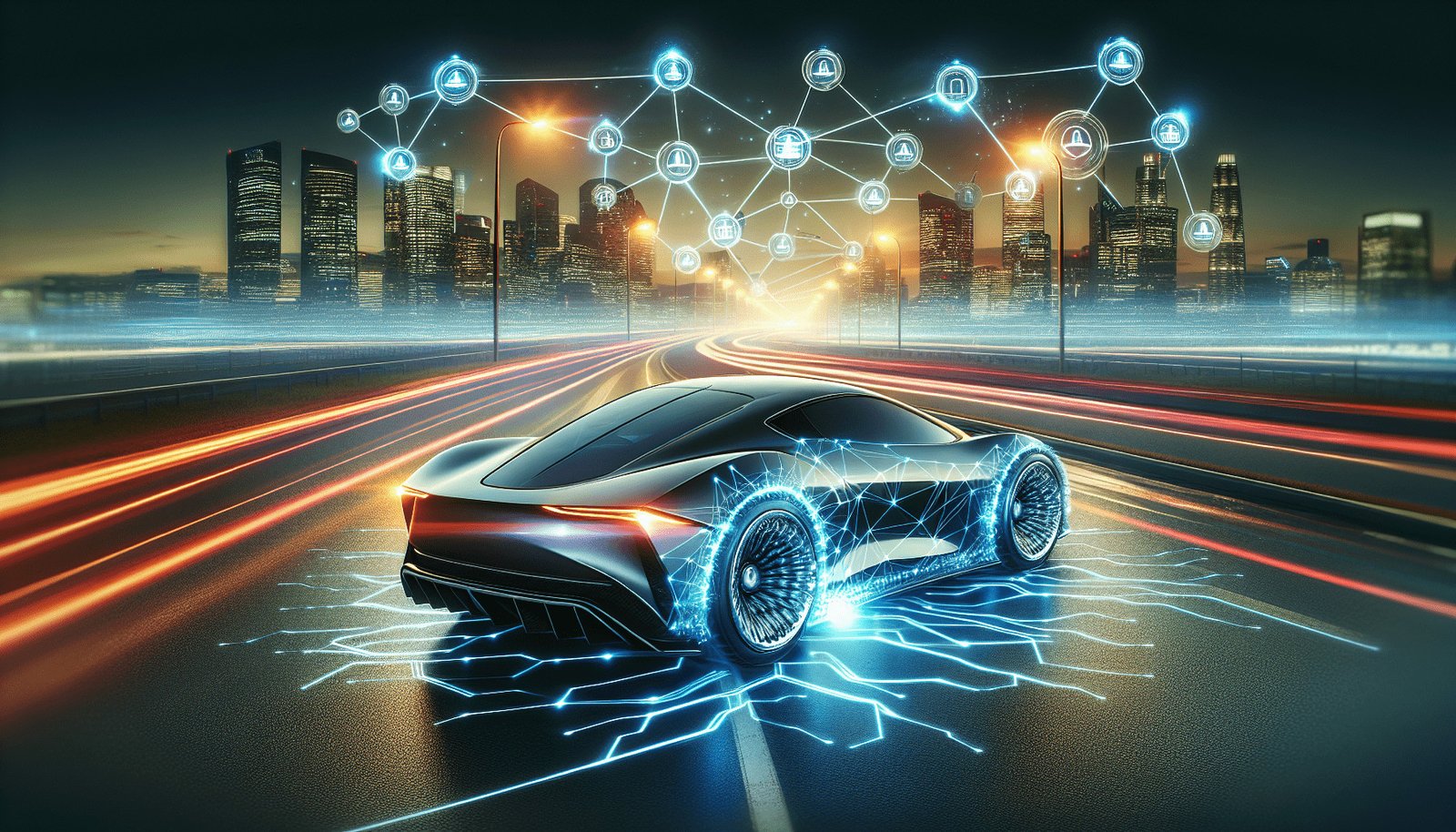Have you ever wondered how blockchain technology can revolutionize the automotive industry? In an age where transparency, efficiency, and security are paramount, the integration of blockchain technologies into various sectors, including automotive, has become increasingly crucial. Let’s take a journey to explore the fascinating world of Automotive Blockchain (AUTO) and understand how it is transforming the landscape for manufacturers, dealerships, service providers, and consumers alike.
What is Automotive Blockchain (AUTO)?
Blockchain is a decentralized digital ledger system that records transactions across multiple computers, ensuring that the recorded data is secure and tamper-proof. Unlike traditional databases, blockchain stores data in blocks that are linked together in a chain, making it transparent and immutable. When adapted to the automotive sector, blockchain technology offers a plethora of benefits that promise to reshape the industry.
The Rise of Blockchain in the Automotive Industry
As the automotive industry continues to evolve, the need for innovative solutions like blockchain grows stronger. From ensuring the authenticity of parts to enhancing vehicle telematics, blockchain is set to streamline operations and improve customer experience. Automakers and stakeholders find value in the transparent, decentralized nature of blockchain, which can be utilized across various facets of the industry.
Key Applications of Blockchain in Automotive
Let’s break down some key applications where blockchain is making significant waves in the automotive industry:
Supply Chain Transparency: Blockchain can be used to monitor and verify the origins of automotive parts and the processes involved in manufacturing. This not only ensures authenticity but also enhances consumer trust and helps combat counterfeit parts.
Vehicle History Tracking: For consumers in the used car market, knowing the true history of a vehicle is invaluable. Blockchain can provide access to immutable vehicle histories, ensuring data accuracy regarding previous ownership, maintenance records, and accident history.
Autonomous Vehicle Data Sharing: In the realm of autonomous vehicles, real-time data is crucial for safe and efficient operation. Blockchain enables secure data sharing among stakeholders, enhancing interoperability and collaborative development.
Smart Contracts for Leasing and Insurance: Smart contracts can automate and enforce agreements based on predefined conditions. Whether it’s a lease agreement or insurance claim, these contracts reduce paperwork, expedite processes, and minimize fraud risks.

Crowdfunding Coin (CFC) and Its Role in Automotive Blockchain
The concept of Crowdfunding Coin (CFC) is imperative to automotive blockchain as it provides a financial mechanism to support innovation and development. Crowdfunding relies on contributions from a large number of people to fund new projects, and when combined with blockchain, it offers transparency and security to investors.
How CFC Works within Automotive Blockchain
CFCs facilitate the funding of automotive projects by utilizing blockchain’s secure and transparent nature. Below is a simplified depiction of how CFC can be applied:
| Steps | Description |
|---|---|
| Project Proposal | Innovators propose a project requiring funding, detailing goals, and development timelines. |
| Tokenization | The project is tokenized, converting a portion of the project into digital tokens (CFCs). |
| Crowdfunding | Investors purchase these tokens, funding the project while securing a stake in its success. |
| Development | Funds are allocated for the development of the project, with milestone-based reporting. |
| Returns | Upon project completion, returns are shared with investors, based on token holdings. |
This model not only revolutionizes funding but also encourages more stakeholders to participate in automotive innovation.

Benefits of Automotive Blockchain
Integrating blockchain technology into the automotive industry presents several notable advantages:
Enhanced Security and Fraud Prevention
Blockchain’s cryptographic nature ensures the protection of sensitive data, reducing the risk of cyber threats and fraudulent activities. The decentralization of data storage further enhances security, as there’s no single point of failure.
Greater Transparency
Every transaction recorded on the blockchain is visible to authorized parties, providing a high degree of transparency. This is particularly beneficial for compliance and audit processes, as stakeholders can easily verify data authenticity.
Cost Reduction
By eliminating intermediaries and automating processes through smart contracts, blockchain reduces operational costs. Whether in supply chain management or customer transactions, blockchain minimizes overheads and accelerates process efficiency.
Improved Customer Experience
With access to transparent data on vehicle provenance and service history, consumers can make informed decisions, enhancing their purchasing experience. Additionally, streamlined services via smart contracts minimize delays, delivering prompt customer service.

Challenges Facing Automotive Blockchain Adoption
While the potential benefits of automotive blockchain are numerous, certain challenges need to be addressed for wider adoption:
Technical and Infrastructure Limitations
The integration of blockchain into existing automotive systems can be complex, requiring significant changes to technical infrastructure. The scalability of blockchain must also be enhanced to manage the vast data generated by the automotive industry.
Compliance and Regulatory Concerns
As a relatively new technology, blockchain faces regulatory hurdles. Legal frameworks and standards need to evolve to accommodate blockchain’s unique capabilities, which can be a time-consuming process.
Industry-Wide Collaboration
The success of automotive blockchain hinges on collaboration among various stakeholders, including manufacturers, suppliers, and regulatory bodies. Aligning disparate interests and fostering cooperation can be challenging but is essential for industry-wide integration.
Consumer Mindset and Education
Many consumers are still unfamiliar with blockchain technology. Educating consumers about its benefits and reassuring them of its security is vital for building trust and promoting adoption in mainstream automotive markets.

The Future of Automotive Blockchain
The road ahead for automotive blockchain is riddled with opportunities and challenges. Nonetheless, the compelling advantages it offers suggest a bright future. As technology continues to mature, industry stakeholders are expected to embrace blockchain to address inefficiencies and demands in an ever-evolving market landscape.
Innovations on the Horizon
Continued innovation in blockchain technologies promises to deliver even more applications in the automotive sector. From blockchain-enabled ride-sharing platforms to collaborative vehicle development, the possibilities are ever-expanding.
Collaborations and Partnerships
With more partnerships among tech companies, automotive manufacturers, and startups, the ecosystem for automotive blockchain is set to flourish. These collaborations will drive development and adoption, making blockchain-driven solutions a standard in the industry.
Exploration of New Uses
The potential for automotive blockchain is limitless. Beyond current applications, new uses are on the horizon as researchers and innovators explore untapped areas, paving the way for further disruption in the automotive industry.
In conclusion, the intersection of blockchain technology and the automotive industry presents a transformative shift, offering unprecedented benefits through transparency, efficiency, and security. Balancing these with the existing challenges will be pivotal in realizing the full potential of Automotive Blockchain (AUTO). Armed with the right tools and strategies, the automotive sector is on the cusp of a significant technological revolution, with blockchain leading the charge.

